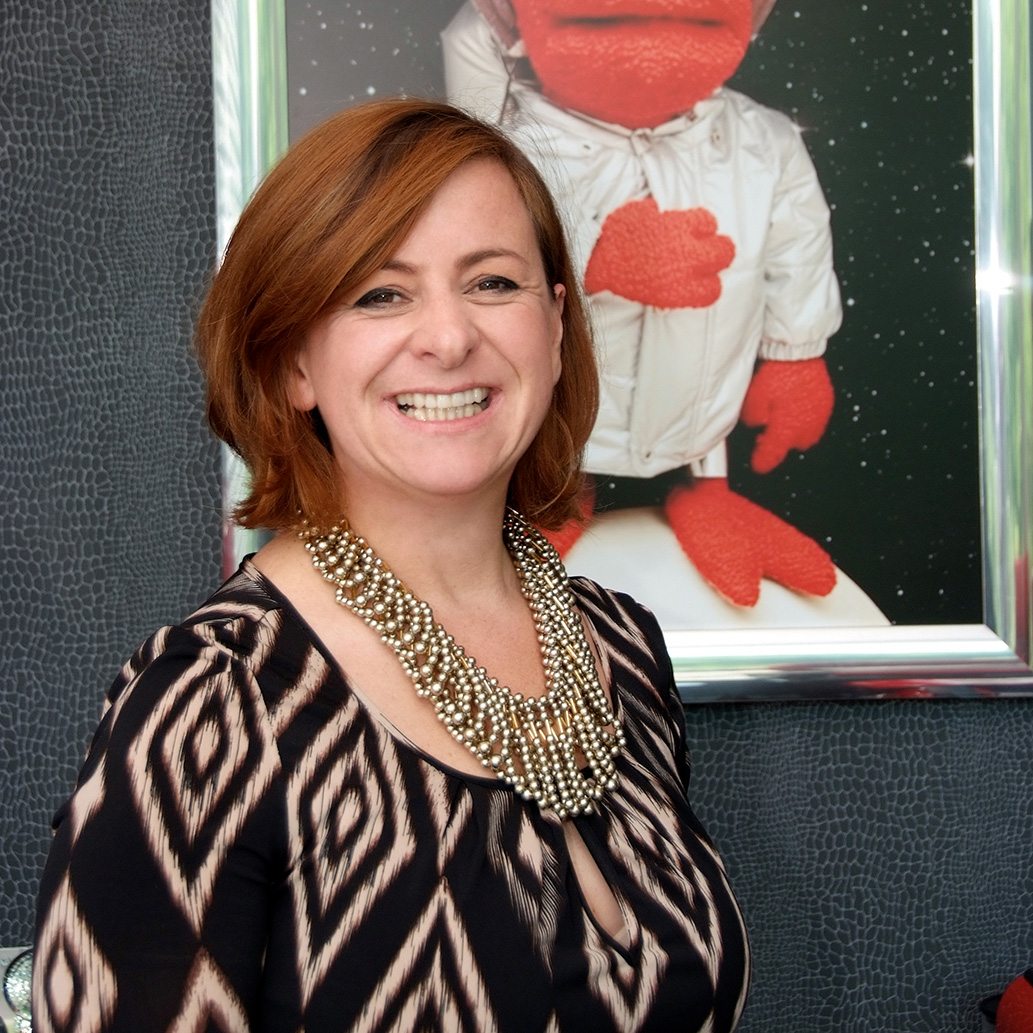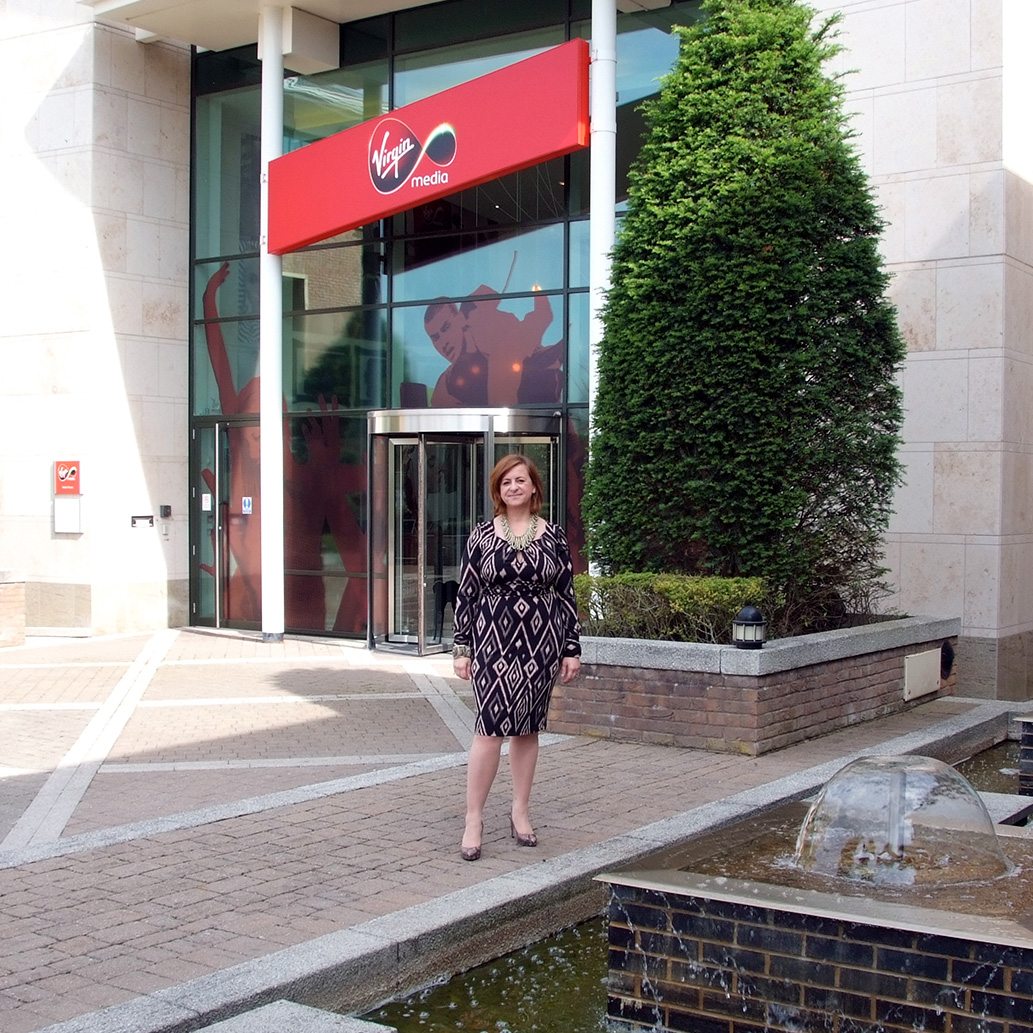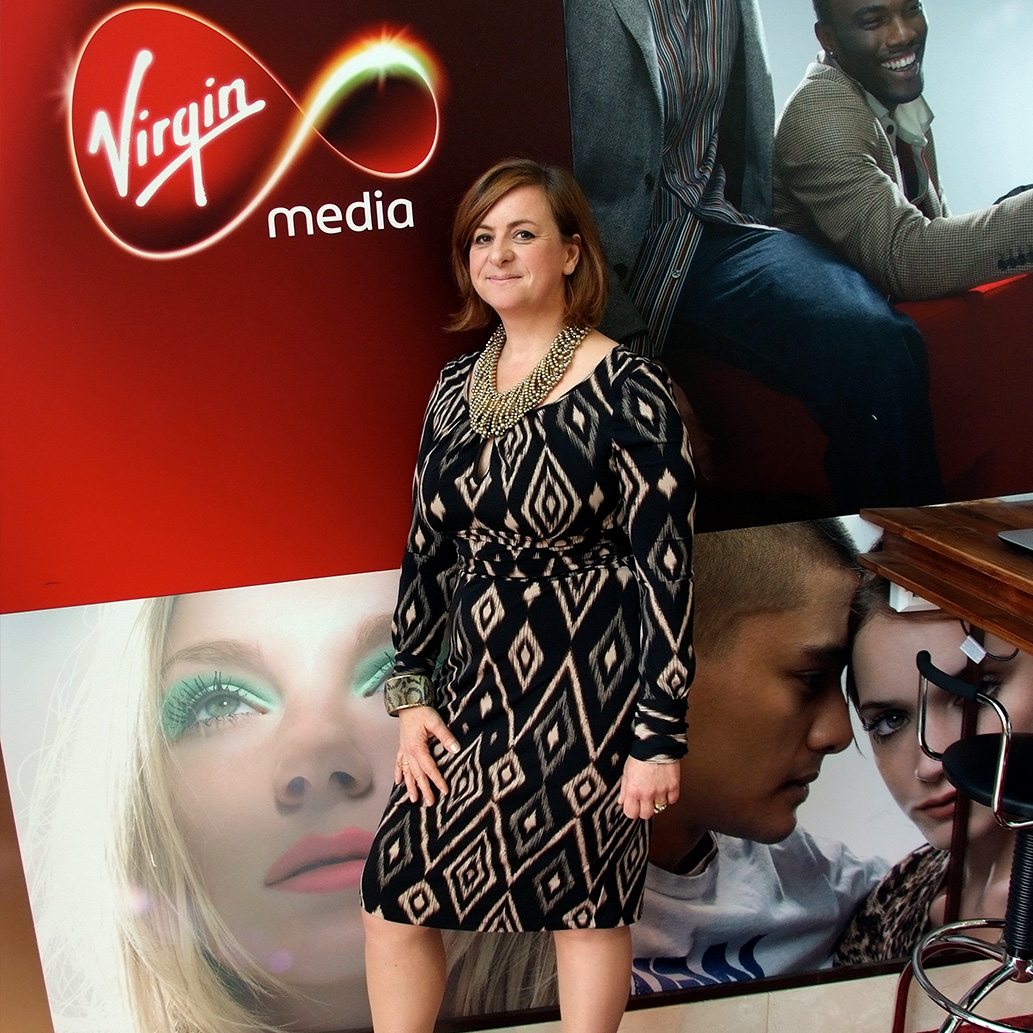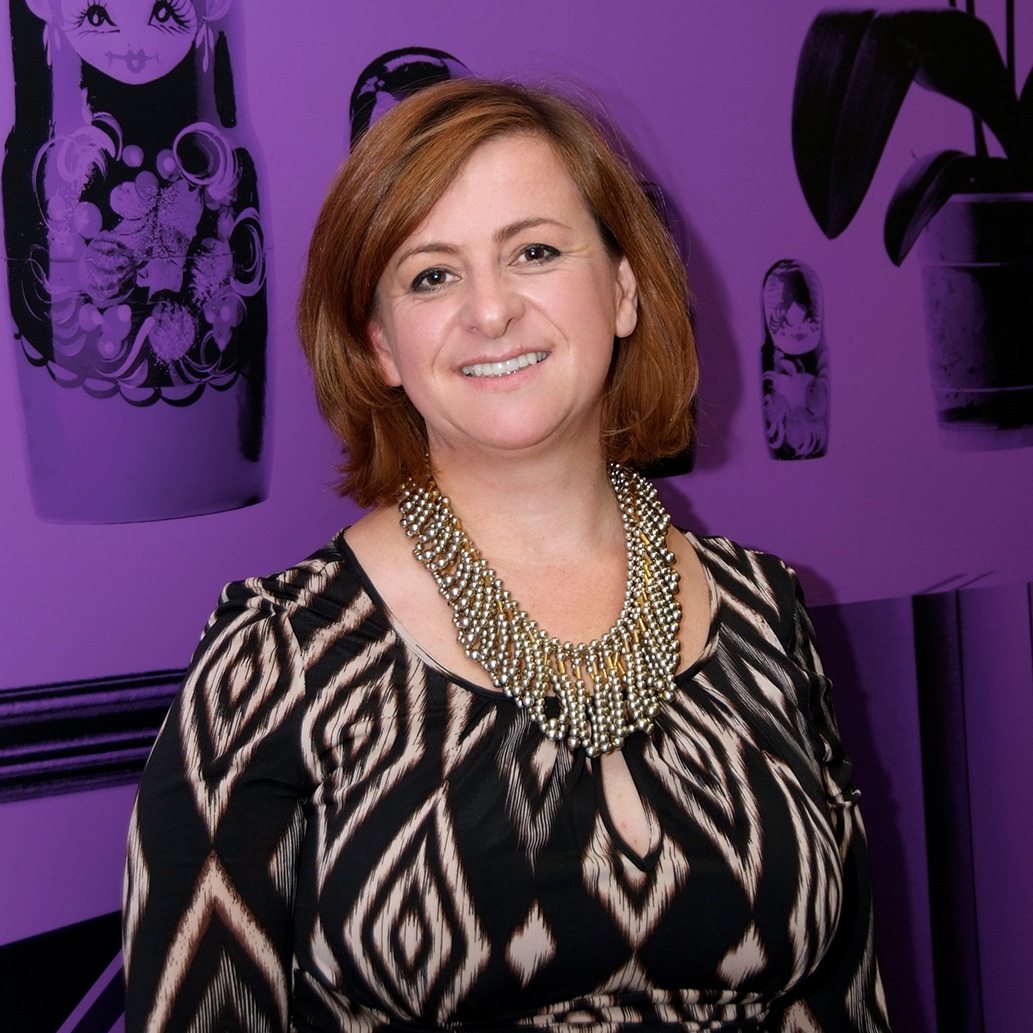Elisa, give us an idea of your early life and career, and what it was about HR that you found a compelling career path to take.
I grew up on the south coast, an Italian father and English mother, and I loved all of the art subjects at school, and took an interest in economics, sociology and psychology at University. I was an annoyingly swatty university student, ingratiated myself at the third year careers fair, and as a result was offered a placement during the summer with Ford, in the personnel function. And I worked at Ford for the first five years of my career and immediately found a massive passion,not just for the people agenda, but the ability to influence a change for a huge organisation, through leadership and how managers manage. I went on to a fairly standard blue chip career, for the first ten to 15 years after Ford, I was at Heinz and then Pepsi, and then I had a bit of time off, travelled for six months, came back and decided to focus on, what I think I’ve been really good at in organisations, an internal HR consultant. I set up my own business, which I ran successfully for seven years, and the great thing about running your own business is you have to be quite humble,and to spend a lot of your time making others look good, and I highly recommend it to anybody in their career.

You joined Marconi just before the .com bubble, with this electronic giant in a sorry state.
Yes, I really missed corporate life, so I sold up my business,looked around for one of the most difficult and challenging internal consultancy projects I could find, and at that time it was Marconi – five billion pounds of debt, and in need of a massive global restructure. So I joined Marconi in a global role, looking at design, restructuring and development, and I stayed at Marconi for five years. This turned out to be one of the best career experiences I have ever had. I worked for two years on financial restructuring, and went on to become Group HR Director and prepared the organisation for sale to Eriksson in 2006.

What one attribute do you think business leaders saw in you, to entrust such massive responsibilities?
I think an understanding, early on in my career that the HR function was so much more than an administrative function. I saw and understood HR as truly a strategic partner and one of the things I like most about the sector as a profession is, if you are a very commercial individual, which I pride myself as being, if you have that interest, your ability to influence the growth agenda is massive. At Virgin Media, the way we engage our employees and the decisions and choices around the operating model are fantastic, and HR is at the very top of that table. So yes it’s been a very interesting journey and I’ve been very privileged to have worked in so many different but really special organisations.
I left Marconi with the business having been sold to Erikson, and I went on to work in financial services. So on my CV, I think I only have oil and gas to do! I’m quite proud of the diversity in my career because one of the things I passionately believe in and advocate, is that you must never stop learning; whether it be technical subject matter or whether you’re learning about a business or a different product set, challenge in the growth agenda or restructuring, it’s what makes the world go round and makes it interesting. So I went from Marconi to Lloyds, in financial services, and I was very interested in the customer-centricity in financial services, and this has proved very useful for my current role at Virgin Media.

And you joined Virgin Media at a particularly important time…
I joined in 2008, and it was a business coming together from a number of separate organisations. A new organisation, with a strong brand in Virgin, embracing all those different companies, different approaches and cultures. I do see myself as an agent of change, and I would also say any good HR person is an architect. So half my job is to take the “what” that is determined by the organisation with input from HR, and work out the “how”, taking that strategy and creating the right operating model, and actually getting that fit for purpose. All of the organisations that we brought together to create Virgin Media: NTL, Telewest and Virgin Mobile, had already gone through massive change up to that point in time, in complex markets, and I think what’s interesting is, when you bring different organisations with different cultural heritages, backgrounds and leaders together, it creates a melting pot. I see that as an opportunity to do it better, to improve it. So we started our journey, with some very strong cultures coming together and these were the core components that would go on to create Virgin Media.
What are the first steps in such a massive undertaking?
First, make sure the basics are addressed and listen to people, ask them what they feel are the problems, the obstacles and stumbling blocks, and identifying the fundamentals. You have to make sure the communication lines are straight and clear; have you got a robust performance management system in place, is there a feedback mechanism, have you got reward mechanisms, do people know what their roles are, does the organisation know where it’s going, has the strategy been articulated and shared, so people have purpose and connection? So, at the very beginning, it was all about fundamental foundation stuff, crucial when you’re making a new company from others. You need to busy yourself with the basic hygiene factors – what do we need to do, and what do people need to do it? And ensuring that we have the best management development and robust performance assessment, and bringing all the values to life. I think over the past three years, we’ve been very clear about objectives, responsibilities, fixing basic hygiene factors and fundamentals, putting good core processes in place and building capability. Then you start to build capability and move on to be the best, in terms of employer practice. Then you have to start asking “what does being the best look like”? And you start to see, and indeed expect aspirational things to happen. You want everyone living and breathing the values. You want absolutely every place and sight you work in to look and feel like a Virgin business. The journey is very tough, and it’s been three years of hard work, but we’ve done a great job at fixing fundamentals and we’re beginning to push at being the best in some areas, but we still have a lot to do. Don’t get me wrong, it’s been a challenging journey, with lots of change, and whenever you’re trying to be the agent of change, that can make a lot of people uncomfortable. Take NTL, which had a £6 billion debt profile when it was integrated with Telewest; so you can’t go in, paint the pillars red and expect everything the day after to be perfect! It’s a journey of ups and downs.
What you can do though is take the fundamental values of an organisation and live up to them,and what we’ve been trying to do is embrace the brand and what it stands for in a very positive way. Employees love the brand, that’s half the battle, and then bit by bit, turn different cultures and procedures, and make them a successful Virgin businesses. It takes a lot of structured focus, it takes the concept of putting employees ahead of customers and shareholders. Richard Branson’s quote that: “If you have happy employees, they will land you with happy customers, and happy customers will make happy shareholders”. So it’s to think about all of the things needed to engage people.
How do you keep focus and keep on message, when there is a lot of unrest and turmoil?
We have a robust framework to the people roadmap, where the fundamental reason for being in business is to serve our customers and to create a great customer experience. If you take that as a starting point, having really engaged employees is the best and only way to achieve a great customer experience. So it goes without saying, disengagement is not going to achieve that objective. Then to get really engaged employees, you need the best leaders to inspire and set direction, and managers to manage development, listen and embody great teamwork. It’s an obvious statement but great leaders and management create an effective organisation. And then there’s doing the basics well and keeping things simple, have the right systems in place, technology that works and the right facilities. Those are the four core pillars, along with flexibility, and building capability and recruiting the right type of people, through our apprentice programme, for example, an energised group of people getting qualified and engaged in taking the business forward.
You have to hold that tension, that it is all about the customer! You must not lose customer confidence, that is at front and centre of any business. We’ve had a metric for the last few years and measured relationships in operations, value for money, and also the customer journey, from joining Virgin Media for the first time, to moving house and getting re-connected etc. Customer satisfaction is the most important performance gauge and the main thing is, it’s a metric that is constantly measured and your outcomes are real and telling.
You say you relish change, but most people fear it...is it hard to get people onboard, and has the brand and what it stands for helped to unify people?
It has been a really interesting, exciting and challenging journey of change, but I think at its heart is the way our employees have really embraced the brand and what it stands for, and what is fascinating is, if you think about the brand values, in some respects, many of them aren’t dissimilar from other brand values; you might talk about; innovation, value-for-money, quality, but the value that exemplifies Virgin is fun. It’s a bit cheeky and unconventional in conventional markets, quite unique, and people do respond well and warm to that.
And that comes from the very top… Yes it is a definer of the Virgin brand and, in my experience with Virgin Media, leadership is all about bringing your personality to work, we don’t want you to look and be the same as everyone else, we have standards of how we expect you to act as a leader, but in terms of style and unique quirks and knowledge, it is a place and an organisation that cherishes and embraces diversity. Some of that is being who you are, that gives the place a sense of freedom and a place where you can be innovative, it’s not a place where you can’t have a new idea, if you have an idea here people want to hear it and get it on the table, that doesn’t mean you can’t perform appropriate governance and control, the reality of any organisation, you have to have good governance and control, and we’ve been very successful at that. I don’t think it’s a negative, in many ways we’ve stolen the march on the whole flexibility in working approach, allowing people to be themselves. And attracting and engaging young people is key to innovating media sectors.
There is a quite different set of expectations and values, in terms of employment.
Absolutely, people these days network in a new way, use social tools and have more demand for being flexible, they still want to be very creative and it’s not about being at one organisation for life, it’s about the continuous learning curve and doing different things. I think were quite lucky in that respect, we have a quite different approach. Not only the nature of where we come from but of the brand. I also think that attitude or character I would term it, that people are looking for, not only intelligence and qualification, but is this person bright, are they able to think creatively and be practical at the same time – it’s much more about attitude and character. When we think about talent we have a set of criteria where we say,obviously we want people who can perform and can be given an objective and are able to achieve it. But actually, we also want people with a lot of learning agility, and we want people to absorb information, learn new things about their associates and colleagues and have desire as much as technical brilliance.
But you can’t have an organisation full of freewheeling innovators.
Exactly when we look at young talent we’re looking for people who have an interest in managing others and becoming good leaders, and good leadership is of course about character rather than technical expertise. With leadership, we’re looking for courage, a good balance of risk-taking and restraint, energy and drive and all of those character strengths that are very important. I think people aren’t looking at a one dimensional route where they go to school and do their AS levels, go to Uni and get a job. I think organisations are looking at young people as a more holistic entity and might take graduates, apprentices at 18 or 16, maybe second jobbers, we might take returners looking for a new role and people who are retired or close to retirement, so I think people are looking at the job market and how they hire them and I think we have to do that. We have an aging population, we have graduates trying to find roles, and we have a lot of young people who are looking for a career path but perhaps don’t quite know where to start. I would expect a large proportion of apprentices to become team leaders.
A changing environment, many differences in the employer/employee relationship, people are planning careers in quite different ways.
It is the more fluid and agile organisations that will keep people engaged and interested and actually build a good career. Of course,There are certain professional functions within organisations. But I think the way companies do business is where the real change is and the other difference to say 25 years ago when I started, is that young people viewed the corporates as a prime answer to a career, whereas young people today are much more entrepreneurial, confident in their own capabilities and knowledge, setting up their own businesses, doing things online, so loads of options for the highly-capable to consider and explore. And so, not just big cooperates, but all businesses, must demonstrate real flexibility and really give engaging experiences and scope. Let the people who want to be technical, be technical, let people with the capacity for general management pursue those opportunities, and provide them with whatever they need to operate.
Are there signs of a trend that people want to stay with an organisation longer than perhaps they would, say 20 years ago?
I don’t think it’s extraordinary to stay in the fold for longer these days, but of course, it depends on the scope of opportunities and the measure of engagement. And it is change that keeps people on their toes and interested. Without question, we’re all about exciting, ever-changing and merging media markets. The focus is, how do you give customers the best connectivity, wherever they are, how do you give customers amazing applications, understanding the convergence of technologies and it’s essential that we keep on driving that. At the heart of the product strategy is a very fluid, opportunistic platform for people to bring their ideas to life. You might think, how can we possibly consume any more data? And of course, the curve is unbelievable.
So you can never be satisfied… and technology sets the changing agenda.
I think you can never be complacent! In some areas we’re brilliant and are excelling. We have great values throughout the organisation, and I think we’re in a good space. We’ve built brilliant capability, and we have some really savvy, bright people, an abundance of talent and great engagement. In terms of market positioning, I think we’re somewhere between being the best and continuing to build capability. In many respects, being the best is a set of aspirational statements that you never get to, because the benchmarks continue to improve. These markets are changing at a hectic pace, competitors are changing and customer needs are changing. We always have to think ahead and work in advance. We have what we call “the rocket strategy” whereby we talk about our business strategy as a rocket – the thrusters are the network, the boosters is connectivity, application, convergence, the next two to three years of development is the mission. I think around engagement, we’re doing well, but that doesn’t mean to say there aren’t more things we can do. We have a great brand, some fantastic talent in the business, engaged people who will move heaven and earth to serve customers.
And what is left to be done for the business and also from a personal point of view?
The next step of the journey is to continue to shape the leaders and have more movement around leadership, and create more general management leaders as well as experts. To continue to bring the values to life, continue to get all of our facilities looking and feeling like Virgin buildings and to get our managers managing better, the everyday things that make people happy when they come to work. If I ever leave an HR legacy it would be, having the best people in the industry in our business, doing fantastic work, but also to amplify the level of fun, coming to work and enjoying what you do, the rewarding personal relationships you build, the teamwork and the challenges of doing a tough job better. Moving forward, I’ve been here four years, and I feel just as excited about the challenges and opportunities to come in the next four years.












